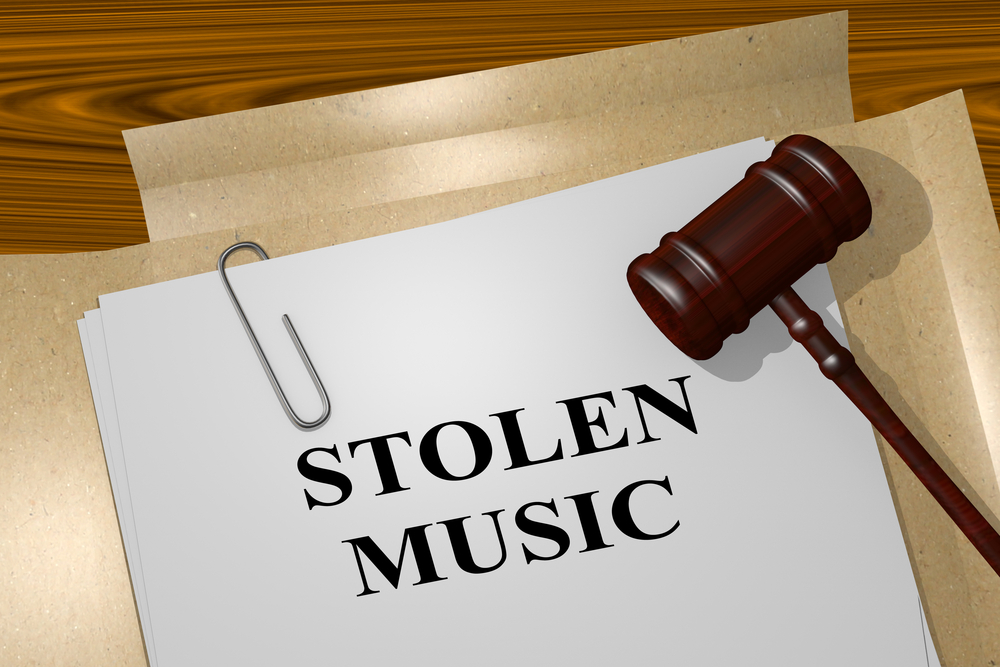Reminiscent of David and Goliath, several independent musicians from Queens are taking on Amazon in two separate class action lawsuits filed in a New York federal court. The cases, Yesh Music v. Amazon and Cupolo v. Amazon, allege the retail and music streaming giant failed to obtain the licenses required to offer plaintiffs’ and potential class members’ music on Amazon Prime and other Amazon-related music services.
Lawsuits Charge That Amazon Didn’t Fulfill Licensing Requirements
In the Yesh lawsuit, Amazon was recently granted partial summary judgment after successfully arguing the company had met its mechanical licensing responsibilities by satisfying the requirements for the compulsory mechanical license as outlined in Section 115 of the Copyright Act, or by obtaining a mechanical license directly from the independent musicians who granted those rights when entering agreements with music aggregators like TuneCore.
New York Attorney Richard Garbarini, who represents the plaintiffs in both cases, asserts his clients’ agreements with TuneCore did not constitute ownership on the part of anyone besides the artists themselves.
“Aggregators like Tunecore function as link between independent artists and services like Amazon. They submit the music to the digital store. But it’s just like an audition – they don’t purchase anything. That’s why you need a Section 115 license,” Garbini said. The Copyright Act’s Section 115 allows companies to automatically obtain a license at a certain rate, but also requires that they file a formal notice of intent (NOI) with the U.S. Copyright Office, something Amazon failed to do, according to Garbarini.
Garbarini is appealing the recent ruling in Yesh, and in April, he filed another class action lawsuit on behalf of musicians Richard Cupolo and Brian Eich against Amazon.com and Amazon Digital Services Inc. alleging copyright infringement and theft of royalties. In its communications with the judge currently overseeing the Cupolo lawsuit, Amazon has suggested it will present similar defenses used in Yesh Music in this case as well.
Representatives for Amazon didn’t reply to requests from PacerMonitor for comment.
Copyright Infringement and the Copyright Act of 1976
The Copyright Act of 1976, which has been amended several times, lists six exclusive rights a copyright owner has regarding his work, including the right to distribute, reproduce, and publicly perform the copyrighted work. These are exclusive rights, meaning only the copyright owner, or a person authorized by the copyright owner, may exercise them.
To offer music on its various services, Amazon and similar companies must have a public performance license in the song and a public performance license in the sound recording. Most song public performance licenses are obtained from one of the performing rights organizations (PROs) for songs – ASCAP, BMI, and SESAC in the U.S. – or directly from the copyright owner.
Streaming – The New Frontier
Streaming is quickly becoming the primary method of music distribution. If the streaming is noninteractive, Amazon can obtain a compulsory license for the sound recording public performance. In contrast, if the streaming is interactive (meaning the listener can choose specific songs), Amazon must negotiate to obtain the sound recording public performance license from the sound recording copyright owner.
With interactive streaming, Amazon requires a mechanical license in the song. Mechanical licenses, which convey permission to reproduce and distribute copies of the song, can be obtained as a compulsory license or through direct negotiation with the song copyright owner. According to Washington, D.C., Copyright Attorney Joy Butler, “Cupolo’s primary complaint is that Amazon failed to implement the proper steps for acquisition of a compulsory mechanical license.”
‘Music Licensing Not Intuitive’
If all this sounds complicated, Butler said that’s because it is.
“The requirements change depending on whether the service is using the song, the sound recording or both and on how they are being used. It is common for both songwriters and music services to be confused about licensing requirements,” she said. “But Cupolo and similar cases might clarify the acceptable and legal methods for obtaining the necessary permissions for streaming and other forms of digital distribution.”
While it is not yet clear whether or not Amazon took advantage of any musicians, one of the challenges for music streaming services is identifying and then reaching the musicians who are owed royalties. “One strategy musicians can implement to combat this problem is making certain the digital music they release has complete and accurate metadata,” Butler said.
According to Garbarini, the music industry changed dramatically in 2004 with emergence of Rhapsody (now Napster) and other digital music services. “Then with the introduction of iTunes and other digital stores, all of the sudden musicians had a bunch of avenues to earn revenue. It’s become a very complicated industry,” he said.
Despite the complexities of music licensing and streaming, it is the primary way that thousands of independent musicians make a living today. From the Cupolo v. Amazon complaint: “When Defendants make a musical composition available or distribute that composition before a publishing license is obtained, the owner(s) of the publishing rights to that musical composition (generally the artists) does not get paid. For songwriters, like Plaintiffs, whose recordings are not played on the radio, the royalties earned from streaming revenue is often substantially the largest part of their income.”
Could Cupolo Open the Door for Independent Musicians?
Although litigating against a corporate giant like Amazon seems like a tall order, by filing a class action lawsuit, independent artists like Cupolo and Eich could be opening the door for other musicians who may have gotten the short end of the stick in terms of copyright and royalties.
“There are other cases in which streaming services have been accused of failing to obtain necessary licenses or failing to pay royalties. For example, Spotify recently settled such a class action lawsuit for over $43 million.” said Butler. “There are many independent musicians whose music is offered through streaming services, so if the claims turn out to be valid and survive a summary judgement motion, the pool of plaintiffs could be large.”
“Independent artists are the most abused group on the planet. They’re musicians –extremely distrustful of lawyers and the system.When they do find out what is going on they don’t know what to do. It will take an affirmative ruling on a case such as this for them to decide to wake up and go after their rights,” said Garbarini. “But every independent artist who is not subject to a blanket license – and there are tens of thousands of them – are being impacted by this.”







3 Comments
My husband and i ended up being absolutely satisfied that Albert managed to round up his studies with the ideas he had from your own weblog. It is now and again perplexing to simply continually be releasing ideas that other folks may have been selling. So we remember we need you to be grateful to because of that. Most of the explanations you made, the easy blog menu, the relationships you can assist to create – it’s got everything wonderful, and it is letting our son and the family reckon that the matter is fun, and that is incredibly serious. Thanks for all the pieces!
Excellent post. I was checking constantly this blog and I am impressed! Very helpful information specially the last part 🙂 I care for such info a lot. I was seeking this particular information for a very long time. Thank you and best of luck.
Hello my friend! I wish to say that this post is awesome, great written and include almost all important infos. I would like to look extra posts like this .